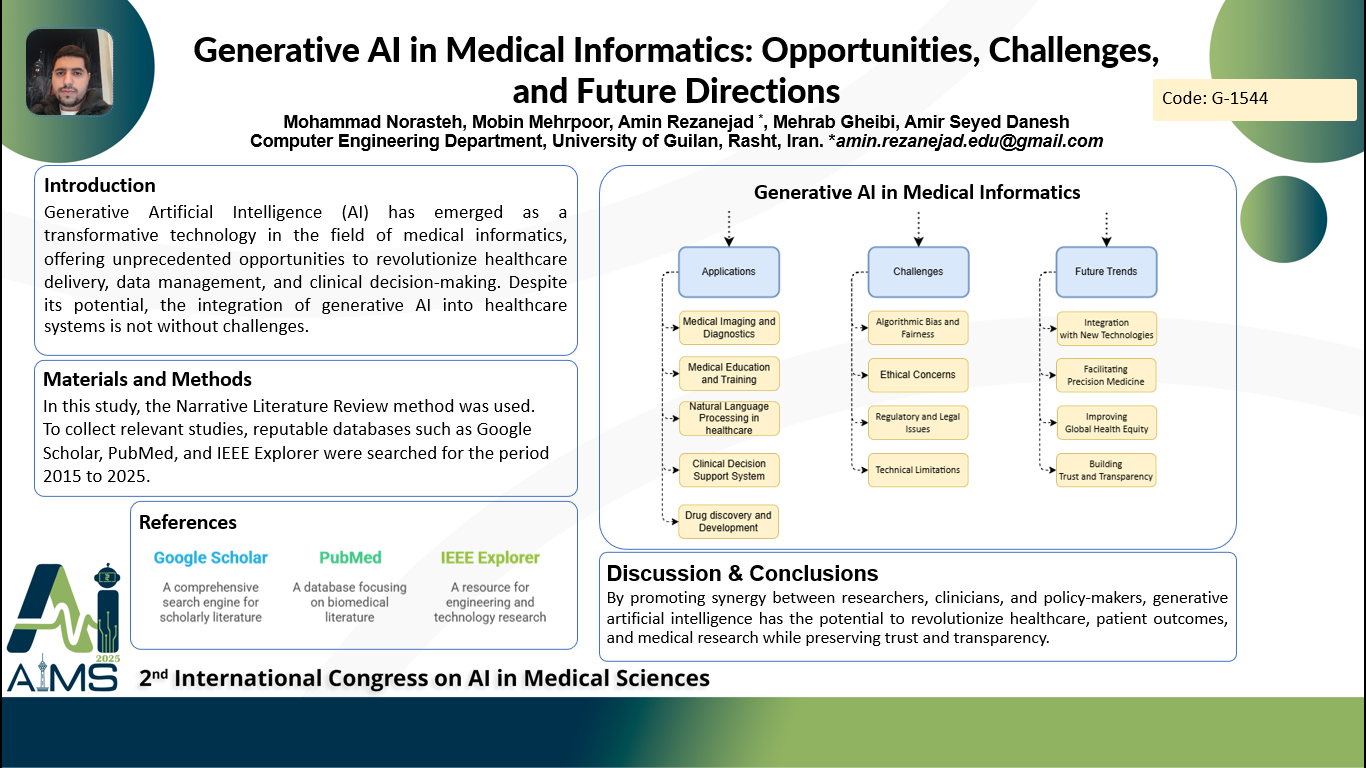Generative AI in Medical Informatics: Opportunities, Challenges, and Future Directions
Code: G-1544
Authors: Mohammad Norasteh, Mobin Mehrpoor, Amin Rezanejad * ℗, Mehrab Gheibi, Amir Seyed Danesh
Schedule: Not Scheduled!
Tag: Intelligent Virtual Assistant
Download: Download Poster
Abstract:
Abstract
Background and aims: Generative Artificial Intelligence (AI) has emerged as a transformative technology in medical informatics, offering unprecedented opportunities to revolutionize healthcare delivery, data management, and clinical decision-making. This study aims to explore the current applications, opportunities, and challenges of generative AI in healthcare, with a focus on its potential to improve medical imaging analysis, personalized treatment planning, automated report generation, and medical education. Method: This narrative review synthesizes findings from various published studies to provide a comprehensive overview of generative AI's role in medical informatics. The review examines the methodologies, tools, and frameworks used in current research, including the analysis of large datasets, development of AI models, and their integration into clinical workflows. Results: The findings highlight the significant potential of generative AI in enhancing diagnostic accuracy, personalizing patient care, and streamlining administrative tasks. However, challenges such as data privacy concerns, algorithmic bias, ethical dilemmas, and the lack of robust regulatory frameworks were identified as critical barriers to its widespread adoption. The review also underscores the need for interdisciplinary collaboration to address these challenges effectively. Conclusion: Generative AI holds immense promise for transforming healthcare, but its successful integration requires addressing technical, ethical, and regulatory challenges. This study advocates for improvements in health equity, transparency, and precision medicine to maximize the benefits of generative AI. Future research should focus on developing ethical guidelines, ensuring data security, and fostering collaboration among stakeholders to create a more equitable and efficient healthcare system.
Keywords
Generative AI, Medical Informatics, Healthcare Innovation
